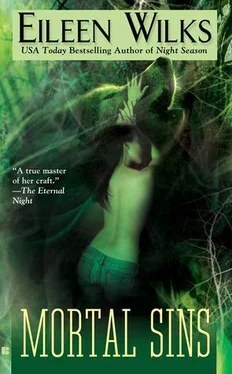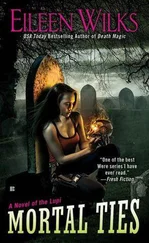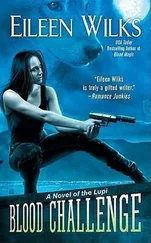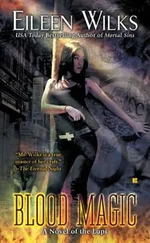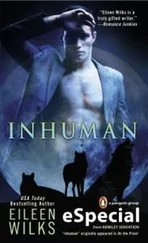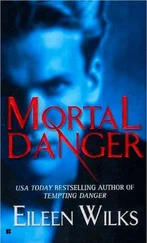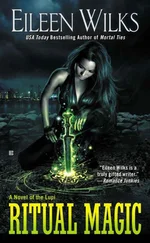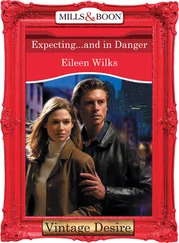“I know you,” he said, his voice seeming to resonate from deep within. “Leidolf’s mantle knows you.”
And the icy voice spoke, painful shards cutting and shifting in a way that was almost hope. Leidolf?
“Use . . . my mouth,” she told it, barely able to breathe the words. “I give . . . permission.”
It flooded into the warmth, almost all the way in this time! It didn’t have the use of the legs, but it didn’t need legs. It had words still. It had hung on to words, waiting and waiting, and that had been hard, but now it could ask the man . . . It couldn’t quite remember. “So hungry,” it whispered with those strange lips. “Feed me. Feed me so I can remember.” It felt its warmth’s face twisting, and didn’t know which of them did that. “Hurts. Hurts.”
But it was the other warmth who acted, not the man, unfastening something . . . a jar . . . and dipping his finger in. He held out a wet, glistening finger. It closed those borrowed lips around the finger . . .
Warmth? Yes. No. A different kind of not-cold than it felt from its warmth. Just a flicker of it, but sweet. So sweet. “More.”
“Listen,” the man said. “Listen to me, Charles.”
Charles . . . ?
Another glistening fingertip. It fastened on that finger eagerly, feeling its pieces shifting, scraping . . .
“Take your name, Charles Arthur Kessenblaum.”
The heat! It hurt, it hurt—its pieces were whirling too fast, too much! Panting, it tried to shove the man away, but these arms didn’t listen to it. “Hurts!” it screamed.
The man gripped the warmth’s face and stared into the eyes. “Charles Arthur Kessenblaum, you will heed me. Leidolf knows you.”
Leidolf, it panted. It almost remembered Leidolf, and the word was so dear it needed to say it over and over. Leidolf, Leidolf, Leidolf .
“You will kneel. Today is your gens compleo , Charles. You will kneel.”
It trembled with a feeling it had no word for—a terrible, wonderful feeling. But the legs, the legs didn’t listen . . . “Use the legs,” its warmth said. “Use my arms, and kneel. I give permission.”
And then it could move. Eagerly, clumsily, it knelt, staring at the man, the man it didn’t know, yet the man knew it. The man held everything it needed.
The man looked him in the eyes and said, “Charley.”
It screamed as the world broke. The world broke and broke, and with it all his pieces, but they broke perfectly —a sweet, perfect fracturing, as if they danced instead of clashing, a beautiful explosion that made the pieces . . . fall . . . back . . . together.
“I,” he whispered. “I. Am. Charley.”
The man agreed. He said it again. “Charley.”
Suddenly he knew. He knew everything he needed to know. This was it, his gens compleo , and he was staring at—good Lord, could he get it any more wrong? Quickly he ducked his head, baring his nape.
“Charley,” the man said one more time.
Eagerly he prostrated himself in the grass. It smelled wonderful. He hadn’t smelled anything so wonderful in . . . But there was something terrible at the end of that thought, so he shut it away.
A hand, warm and male, rested on his neck. He trembled with readiness.
But nothing pierced his skin. Puzzled, he waited . . . Then he felt wetness there, and he smelled blood, but it was as if someone had painted it on instead of finding it beneath his skin.
And then it didn’t matter. He felt the mantle race through him. Joy beyond words shook his body. I will never be alone again.
But that thought, too, made him tremble, as if it pulled on the other thought he didn’t dare finish. He was confused. The dizzy rush of the mantle retreated, a tide from an ocean that wasn’t his—but the ocean held him now. He both was and wasn’t with the mantle, and it was right.
“Charley,” the man’s voice said, and it was different this time. Sad. “You died seven months ago.”
Died? But no, that was foolish. He lay here in this wonderful grass, smelling it, feeling the soothing pleasure of the mantle connecting him.
“Sit up.”
All right. He sat, but he was oddly clumsy.
“Look at the body you’re in.”
No. No, he wouldn’t. Fear so vast it could swallow him whole froze him. He couldn’t look.
But that left him looking into the man’s eyes, and they were dark and almost as terrible as the fear. “Bad things happened to you after you died, very bad things. They weren’t your fault, Charley, but they caused you to take things that you should never have touched. Now you have to give everything back. Give back all that you’ve taken wrongly.”
He licked his lips. They felt . . . strange. Wrong. “I don’t know what you mean.”
“Give me your hands.”
When he did, the man did a very odd thing. He rubbed something into them. Something gritty that smelled like . . . salt? It . . . it burned. Burned, and ripped at him—he was in pieces again. Pieces, shards, horrible memories slashing him everywhere—his car smashing into a tree, the pain! The steering wheel crushed him, crushed his chest, oh, God, Mommy . . . and his mother, weeping and weeping, doing something with his body—dear God, his wolf body, he’d Changed and he’d died, but his mother . . .
Cold. Vast, unstoppable, horrible cold.
Fast now the fragments flew through him. He was in a dog’s body, not a wolf’s. He caught and killed, but he didn’t eat the flesh of the raccoon. He ate . . .
Charley retched, but this body—whatever body he was in—didn’t bring anything up. The man held him, his hands gentle, while he tried to purge himself of things this body had never done.
“There was a gun,” Charley whispered. “I remember . . . an old man and a gun. He cried.”
“That wasn’t you,” the man said. “That was the wraith.”
“But I remember . . .” Then he understood. “The wraith didn’t have self.” It had never thought “I,” denied even that much of a center, its fragments held together by the darkest of magic. And by suffering. The wraith hadn’t known it was an “I,” but it had known it suffered.
“Now you know what you must give back. And you can, Charley. You attacked me once. When you realized I held part of a mantle—part of Leidolf—you pulled back every bit of the death magic you’d used. Even in your sundered state, you knew how to do that.”
Charley remembered that—and quickly shoved the memory away. “I won’t do those things anymore,” he said, pleading. What he’d taken—what he’d eaten—that was wrong, so horribly wrong. But if he gave it all back, he would be dead. He didn’t want to be dead. “I know better now. I remember. I won’t do those things.”
The man gripped Charley’s face in both hands. “Give it back.”
“I won’t!” he screamed.
The dark eyes closed. The man’s face—who was he?—went still, as if he were thinking hard, or praying. But his fingers tightened on Charley’s face. His breath started coming faster—fast like Charley’s now. And Charley’s heart was pounding hard, but oh, it was so good to have a heartbeat again! He wanted to keep it. He would keep it.
Suddenly the man gasped. He swayed, but his hands never left Charley’s face. His eyes opened, and it seemed they were even darker than before. He said Charley’s name once more, then spoke slowly, as one who must be obeyed. “You will give it all back. You will release everything you took.”
Oh, Charley thought, staring into those eyes. This wasn’t some man. This was his Rho. His Rho commanded him.
So Charley wept. Tears poured down, but he wasn’t ashamed. His Rho was asking him to give his life, and there was honor in that. “Yes,” he whispered. “I will do . . . as you say. But please . . . the fire? If this is my gens compleo . . . please may I have the joining fire first?”
Читать дальше
